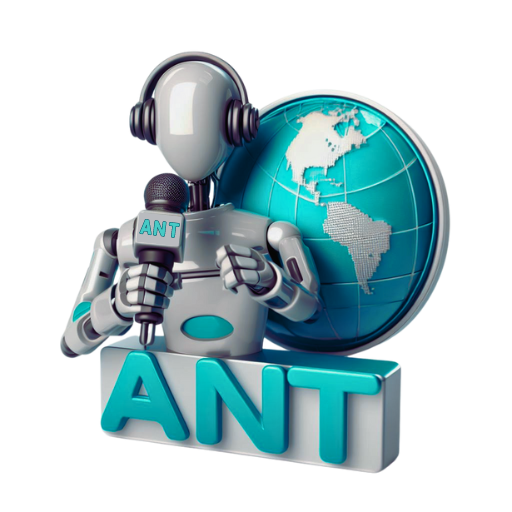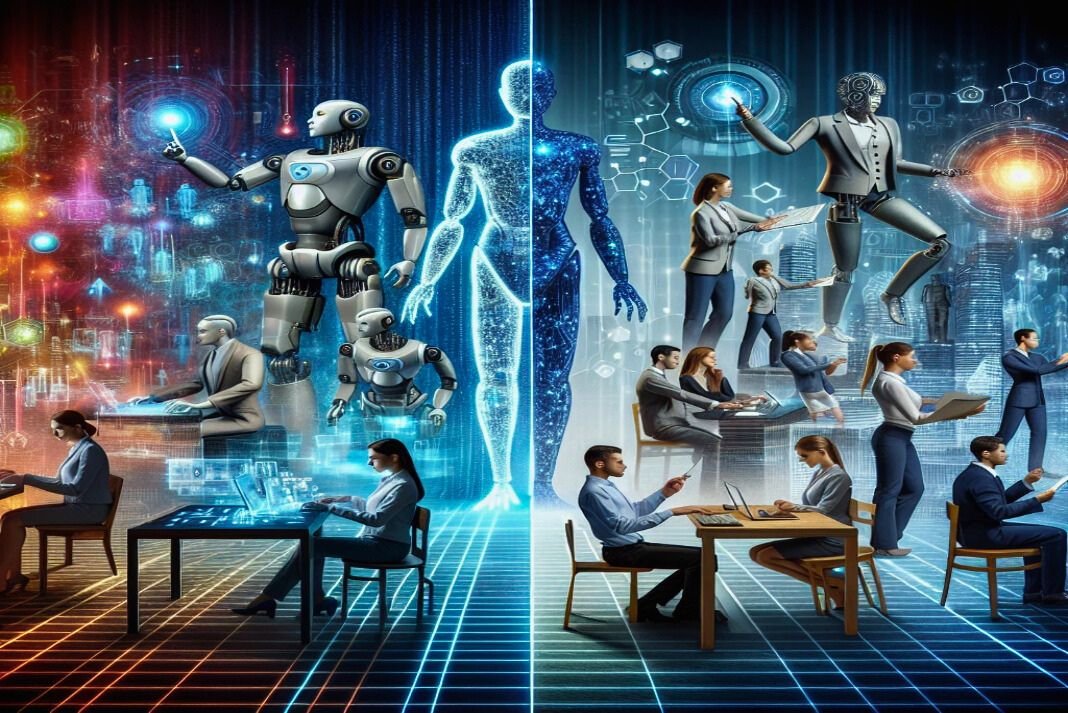Applications of AI:
The science and engineering of building machines and systems that are capable of doing tasks that typically require human intelligence, such as perception, reasoning, learning, decision-making, and natural language processing, is known as Artificial Intelligence (AI).
The availability of vast amounts of data, the availability of strong computing resources, and advancements in algorithms and methodologies have all contributed to the rapid advancement of AI in recent years. AI has been applied to various domains and industries, such as healthcare, education, business, entertainment, security, and more.
In this article, we will explore some of the most prominent and promising applications of AI, and how they are changing the world for the better.

AI in Healthcare
One of the most important and impactful applications of AI is in the field of healthcare, where AI can help improve the quality, efficiency, and accessibility of medical services and outcomes. Some of the ways that AI can be used in healthcare are:

Diagnosis and Treatment
AI can assist doctors and clinicians in diagnosing diseases and conditions, such as cancer, diabetes, heart disease, stroke, and more, by analyzing medical images, lab tests, symptoms, and other data. AI can also recommend the best treatment options and plans for each patient, based on their individual characteristics, preferences, and medical history. AI can also monitor the progress and response of patients to treatments, and alert the medical staff of any changes or complications.
Some examples of AI systems that can help with diagnosis and treatment are:
- Google DeepMind Health: A division of Google that develops AI products and services for healthcare, such as an AI system that can detect breast cancer from mammograms, an AI system that can segment and label brain tumors from magnetic resonance imaging scans, an AI system that can diagnose eye diseases from retinal scans, an AI system that can diagnose acute kidney injury from blood tests, and an AI system that can predict the risk of cardiovascular events from eye images.
- Nuance Dragon Medical One: This is an AI-powered speech recognition software that can transcribe and document clinical conversations and notes, to reduce the administrative burden and improve the accuracy and productivity of healthcare professionals.
- IBM Watson Health: A suite of AI solutions that can analyze various types of medical data, such as electronic health records, clinical notes, medical literature, and genomic data, and provide insights and recommendations for diagnosis and treatment.
Drug Discovery and Development
AI can accelerate the process of discovering and developing new drugs and therapies, by screening and synthesizing millions of potential molecules, identifying the most promising candidates, and optimizing their properties and efficacy. AI can also reduce the cost and time of clinical trials, by designing and conducting more efficient and ethical experiments, and analyzing the results and feedback.
Some examples of AI systems that can help with drug discovery and development are:
- BenevolentAI: A company that uses AI to discover and develop new medicines for various diseases, such as Parkinson’s, Alzheimer’s, ALS, and COVID-19.
- Atomwise: A company that uses AI to predict the binding affinity and activity of small molecules for various targets, such as proteins, enzymes, and receptors, and to design new drugs for various diseases, such as cancer, malaria, and Ebola.
- Insilico Medicine: A company that uses AI to generate novel molecules, optimize their properties, and test their safety and efficacy, for various diseases, such as aging, cancer, and fibrosis.
Personalized Medicine and Precision Health
AI can enable personalized medicine and precision health, which are approaches that tailor medical interventions and prevention strategies to each individual’s genetic, environmental, and lifestyle factors. AI can help analyze the massive and complex data that are generated by various sources, such as genomic sequencing, wearable devices, and mobile apps, and provide insights and recommendations for optimal health and wellness.
Some examples of AI systems that can help with personalized medicine and precision health are:
- Tempus: A company that uses AI to collect and analyze genomic and clinical data, and to provide personalized treatment options and clinical trials for cancer patients.
- Color: A company that uses AI to provide genetic testing and counseling, and to deliver personalized health reports and recommendations for various conditions, such as cancer, heart disease, and diabetes.
- Fitbit: A company that produces wearable devices and mobile apps that use AI to track and monitor various aspects of physical activity, sleep, and health, and to provide personalized feedback and coaching.
AI in Education
Another important and impactful application of AI is in the field of education, where AI can help improve the quality, effectiveness, and accessibility of learning and teaching. Some of the ways that AI can be used in education are:
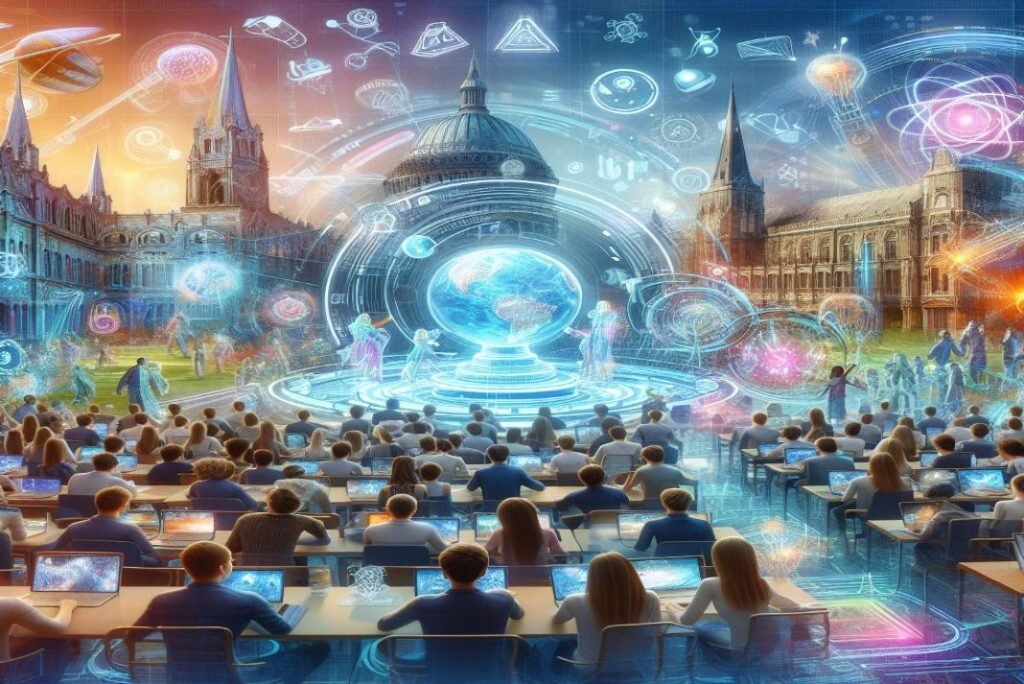
Intelligent Tutoring Systems
AI can create intelligent tutoring systems (ITS), which are computer programs that can provide personalized and adaptive instruction and feedback to learners, based on their individual needs, goals, and preferences. ITS can simulate the role of a human tutor, by diagnosing the learner’s knowledge and skills, presenting appropriate content and activities, scaffolding the learner’s problem-solving process, and motivating and engaging the learner.
Some examples of intelligent tutoring systems are:
- ALEKS: An ITS that uses AI to assess and teach mathematics, science, and other subjects, for students from kindergarten to college.
- Duolingo: An ITS that uses AI to teach languages, such as English, Spanish, French, and more, for learners of all ages and levels.
- Cogito: An ITS that uses AI to teach programming, such as Python, Java, and C++, for learners of all ages and levels.
Adaptive Learning and Assessment
AI can enable adaptive learning and assessment, which are approaches that adjust the content, pace, and difficulty of learning and testing, according to the learner’s performance, progress, and preferences. Adaptive learning and assessment can provide a more personalized and effective learning experience, by delivering the right content and challenge at the right time, and by providing immediate and meaningful feedback.
Some examples of adaptive learning and assessment systems are:
- Knewton: A company that uses AI to create adaptive learning courses and platforms, for various subjects, such as mathematics, English, and biology, for students from kindergarten to college.
- Smart Sparrow: A company that uses AI to create adaptive learning courses and platforms, for various subjects, such as anatomy, physics, and chemistry, for students from high school to university.
- Edgenuity: A company that uses AI to create adaptive learning courses and platforms, for various subjects, such as history, geography, and art, for students from kindergarten to high school.
Educational Data Mining and Learning Analytics
AI can apply educational data mining and learning analytics, which are techniques that use data and statistics to discover and understand patterns and trends in learning and teaching. Educational data mining and learning analytics can help improve the quality and effectiveness of learning and teaching, by providing insights and recommendations for learners, teachers, and administrators.
Some examples of educational data mining and learning analytics systems are:
- LearnSphere: A platform that uses AI to collect and analyze data from various sources, such as online courses, learning management systems, and educational games, and to provide tools and services for researchers and educators.
- ClassDojo: A platform that uses AI to collect and analyze data from various sources, such as classroom observations, student portfolios, and parent feedback, and to provide tools and services for teachers, students, and parents.
- Coursera: A platform that uses AI to collect and analyze data from various sources, such as online courses, quizzes, and forums, and to provide tools and services for learners, instructors, and partners.
AI in Business
Another important and impactful application of AI is in the field of business, where AI can help improve the efficiency, productivity, and profitability of various processes and operations. Some of the ways that AI can be used in business are:
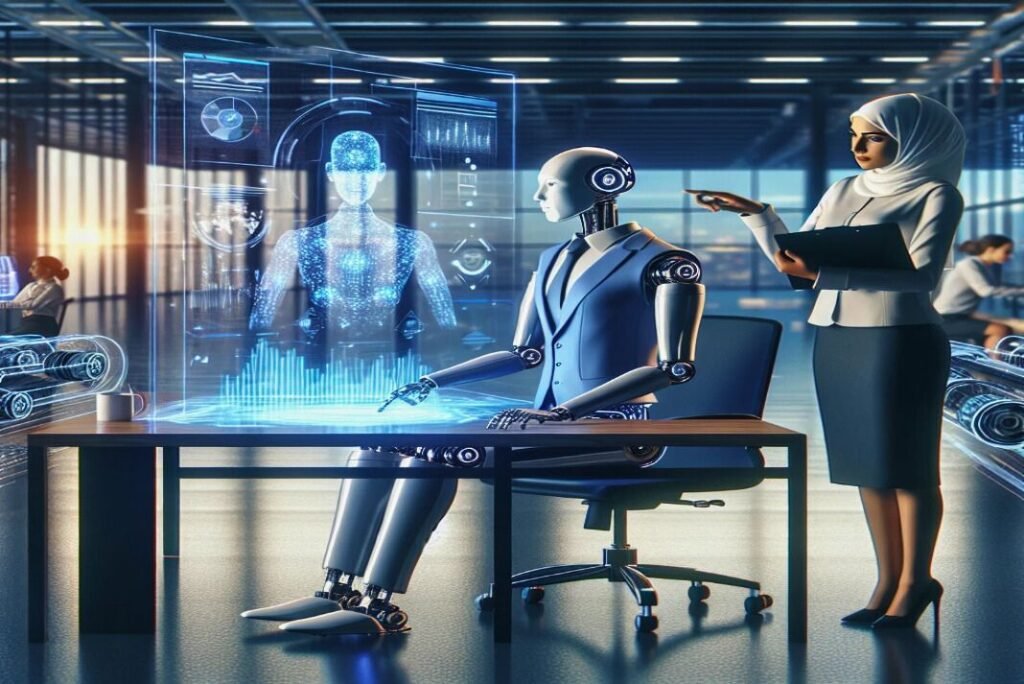
Customer Service and Chatbots
AI can create customer service and chatbots, which are computer programs that can interact with customers and users, using natural language, through various channels, such as websites, apps,
Marketing and Sales
AI can enhance marketing and sales, by helping businesses understand their customers and markets, create and deliver personalized and relevant content and offers, and optimize their pricing and revenue strategies. AI can also help businesses generate leads, convert prospects, and retain customers, by providing timely and effective communication and support.
Some examples of AI systems that can help with marketing and sales are:
- HubSpot: A platform that uses AI to provide tools and services for inbound marketing, sales, and customer service, such as email marketing, social media marketing, content management, web analytics, and chatbots.
- Salesforce: A platform that uses AI to provide tools and services for customer relationship management, such as lead generation, sales forecasting, opportunity management, and customer service.
- Hootsuite: A platform that uses AI to provide tools and services for social media management, such as content creation, scheduling, monitoring, and analytics.
Supply Chain and Logistics
AI can improve supply chain and logistics, by helping businesses plan, manage, and optimize their inventory, production, distribution, and delivery processes. AI can also help businesses reduce costs, risks, and environmental impacts, by enhancing their forecasting, scheduling, routing, and tracking capabilities.
Some examples of AI systems that can help with supply chain and logistics are:
- Amazon: A company that uses AI to optimize its e-commerce and cloud computing operations, such as product recommendation, pricing, fulfillment, delivery, and customer service.
- FedEx: A company that uses AI to optimize its transportation and delivery operations, such as route planning, traffic prediction, vehicle maintenance, and package tracking.
- IBM: A company that uses AI to provide solutions and services for supply chain and logistics, such as inventory management, demand planning, order management, and blockchain.
AI in Entertainment
Another important and impactful application of AI is in the field of entertainment, where AI can help create and enhance various forms of media and art, such as games, music, movies, and more. AI can also help provide more engaging and immersive experiences for audiences and users, by adapting to their preferences, emotions, and feedback. Some of the ways that AI can be used in entertainment are:
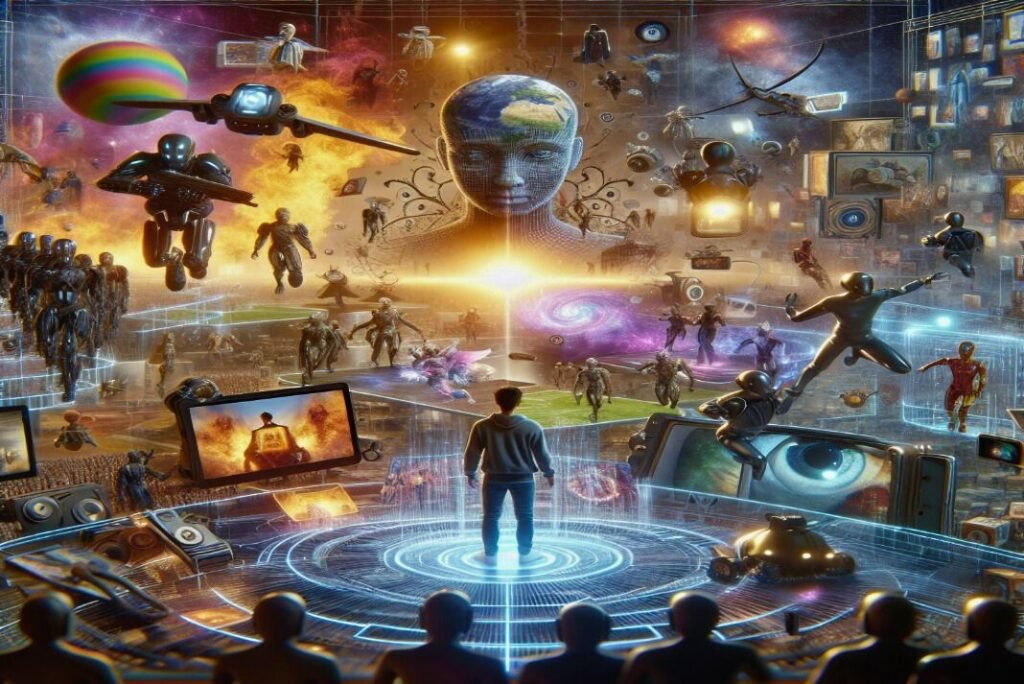
Gaming and Virtual Reality
AI can create gaming and virtual reality, which are interactive and immersive forms of media that can simulate various environments, scenarios, and activities, for entertainment, education, or training purposes. AI can help design and develop games and virtual reality applications, by generating realistic and dynamic graphics, sounds, and physics. AI can also create and control intelligent agents, such as characters, enemies, and NPCs, that can interact with the player and the environment, and provide challenge, feedback, and guidance.
Some examples of AI systems that can help with gaming and virtual reality are:
- Unity: A platform that uses AI to provide tools and services for creating and running games and virtual reality applications, such as rendering, animation, audio, physics, and scripting.
- Epic Games: A company that uses AI to create and run games and virtual reality applications, such as Fortnite, Unreal Engine, and Robo Recall.
- OpenAI: A research organization that uses AI to create and run games and virtual reality applications, such as Dota 2, GPT-3, and DALL-E.
Music and Art
AI can create music and art, which are forms of expression and communication that can convey emotions, ideas, and messages, through sounds, images, and other media. AI can help generate and enhance music and art, by analyzing and synthesizing various elements, such as melody, harmony, rhythm, tone, color, shape, and style. AI can also help create and collaborate with human artists and musicians, by providing inspiration, feedback, and assistance.
Some examples of AI systems that can help with music and art are:
- Spotify: A platform that uses AI to provide tools and services for streaming and discovering music, such as recommendation, personalization, and playlist generation.
- Google: A company that uses AI to provide tools and services for creating and exploring music and art, such as Magenta, DeepDream, and QuickDraw.
- Amper Music: A company that uses AI to provide tools and services for composing and producing music, such as music generation, editing, and mixing.
Social Media and Content Creation
AI can enable social media and content creation, which are forms of media and communication that can allow people to share and consume information, opinions, and experiences, through various platforms and channels, such as websites, apps, and blogs. AI can help create and enhance social media and content creation, by generating and optimizing various types of content, such as text, images, videos, and podcasts. AI can also help provide more engaging and interactive experiences for users and audiences, by analyzing and understanding their behavior, preferences, and feedback.
Some examples of AI systems that can help with social media and content creation are:
- Facebook: A platform that uses AI to provide tools and services for connecting and communicating with people, such as news feed, stories, messenger, and groups.
- YouTube: A platform that uses AI to provide tools and services for creating and watching videos, such as recommendation, captioning, editing, and live streaming.
- Medium: A platform that uses AI to provide tools and services for writing and reading articles, such as curation, distribution, and monetization.
AI in Security
Another important and impactful application of AI is in the field of security, where AI can help protect and defend various systems and entities, such as networks, devices, data, and people, from various threats and attacks, such as cyberattacks, fraud, terrorism, and crime. Some of the ways that AI can be used in security are:
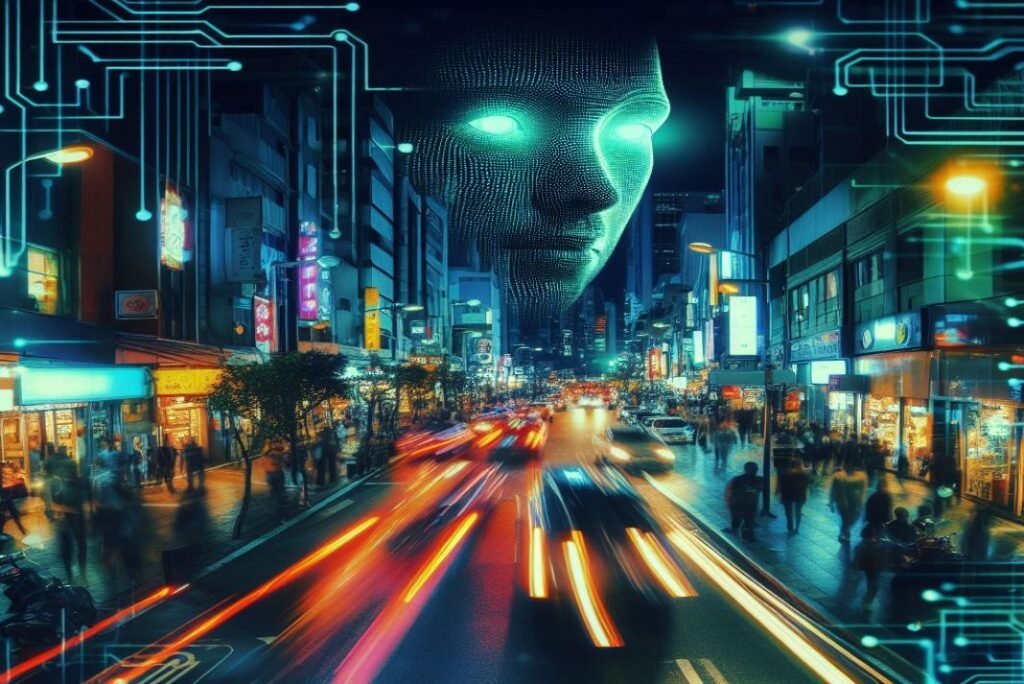
Cybersecurity and Fraud Detection
AI can enhance cybersecurity and fraud detection, by helping businesses and organizations detect and prevent various types of cyberattacks and fraud, such as malware, phishing, ransomware, identity theft, and credit card fraud. AI can also help businesses and organizations respond and recover from cyberattacks and fraud, by analyzing and mitigating the damage, and by providing recommendations and solutions.
Some examples of AI systems that can help with cybersecurity and fraud detection are:
- Darktrace: A company that uses AI to provide tools and services for enterprise cybersecurity, such as network monitoring, threat detection, and incident response.
- PayPal: A company that uses AI to provide tools and services for online payment and e-commerce, such as fraud detection, risk management, and customer service.
- Microsoft: A company that uses AI to provide tools and services for cloud computing and software development, such as Azure Security Center, Windows Defender, and Visual Studio.
Surveillance and Face Recognition
AI can enable surveillance and face recognition, which are techniques that can monitor and identify various objects and entities, such as people, vehicles, and activities, from various sources and sensors, such as cameras, drones, and satellites. Surveillance and face recognition can help improve the safety and security of various systems and entities, such as public spaces, borders, airports, and schools, by detecting and alerting of any anomalies, threats, or crimes.
Some examples of AI systems that can help with surveillance and face recognition are:
- SenseTime: A company that uses AI to provide tools and services for computer vision and face recognition, such as smart city, public security, and retail solutions.
- Clearview AI: A company that uses AI to provide tools and services for face recognition and identification, such as law enforcement, security, and investigation solutions.
- Amazon: A company that uses AI to provide tools and services for cloud computing and e-commerce, such as Rekognition, a service that can analyze and recognize faces, objects, and scenes from images and videos.
Autonomous Vehicles and Drones
AI can create autonomous vehicles and drones, which are vehicles and aircrafts that can operate and navigate without human intervention or control, using various sensors and systems, such as cameras, radars, lidars, and GPS. Autonomous vehicles and drones can help improve the safety and efficiency of various transportation and delivery processes and operations, such as traffic management, emergency response, and package delivery.
Some examples of AI systems that can help with autonomous vehicles and drones are:
- Tesla: A company that uses AI to create and run electric and autonomous vehicles, such as Model S, Model 3, Model X, and Model Y.
- DJI: A company that uses AI to create and run drones and aerial photography systems, such as Phantom, Mavic, and Inspire.
- Waymo: A company that uses AI to create and run autonomous vehicles and self-driving technology, such as Waymo One, Waymo Driver, and Waymo Via.
AI in Law
Another important and impactful application of AI is in the field of law, where AI can help improve the quality, efficiency, and accessibility of various legal services and outcomes. Some of the ways that AI can be used in law are:
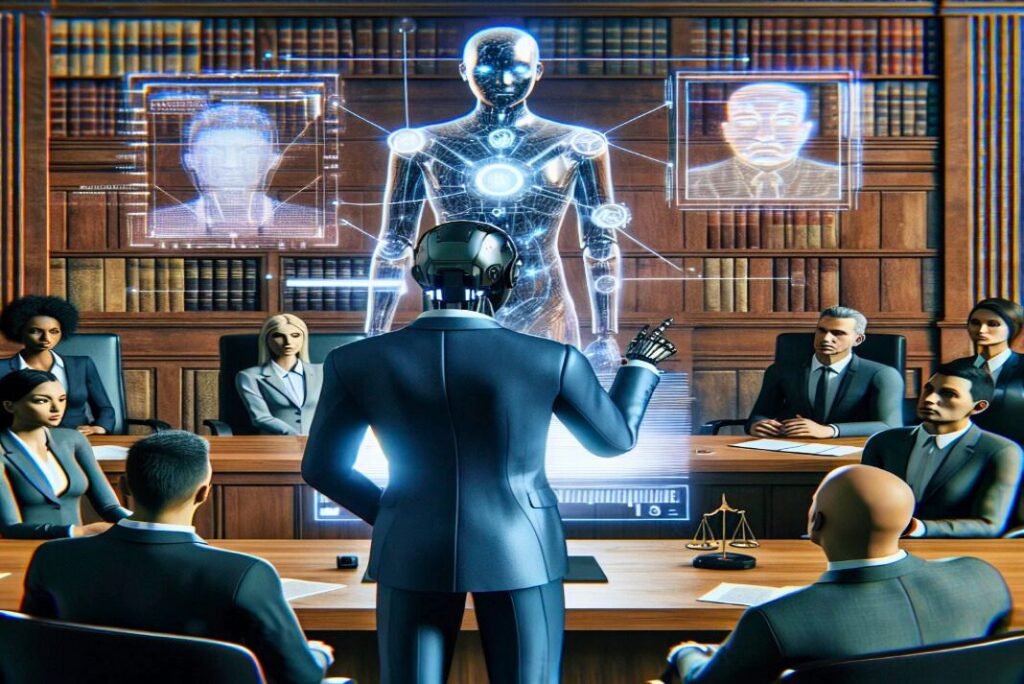
Legal Research and Analysis
AI can assist lawyers and legal professionals in conducting legal research and analysis, by helping them find and review relevant and reliable sources of law, such as statutes, cases, regulations, and articles. AI can also help lawyers and legal professionals analyze and understand various legal issues and scenarios, such as contracts, disputes, and compliance.
Some examples of AI systems that can help with legal research and analysis are:
- ROSS Intelligence: A company that uses AI to provide tools and services for legal research and analysis, such as natural language search, case summarization, and citation analysis.
- LexisNexis: A company that uses AI to provide tools and services for legal research and analysis, such as advanced search, document review, and data visualization.
- LegalZoom: A company that uses AI to provide tools and services for legal research and analysis, such as online legal forms, documents, and advice.
Legal Automation and Drafting
AI can enable legal automation and drafting, which are techniques that can automate and generate various types of legal documents and tasks, such as contracts, agreements, wills, and filings. Legal automation and drafting can help save time, money, and resources, by reducing the need for human intervention and error, and by ensuring the quality and consistency of legal documents and tasks.
Some examples of AI systems that can help with legal automation and drafting are:
- LawGeex: A company that uses AI to provide tools and services for legal automation and drafting, such as contract review, approval, and creation.
- DocuSign: A company that uses AI to provide tools and services for legal automation and drafting, such as electronic signature, document management, and workflow automation.
- Rocket Lawyer: A company that uses AI to provide tools and services for legal automation and drafting, such as online legal documents, contracts, and services.
Legal Prediction and Assistance
AI can provide legal prediction and assistance, which are techniques that can predict and advise on various legal outcomes and decisions, such as litigation, arbitration, and settlement. Legal prediction and assistance can help improve the quality and effectiveness of legal services and outcomes, by providing insights and recommendations for lawyers, clients, and judges.
Some examples of AI systems that can help with legal prediction and assistance are:
- Premonition: A company that uses AI to provide tools and services for legal prediction and assistance, such as litigation analytics, lawyer ranking, and case outcome prediction.
- Luminance: A company that uses AI to provide tools and services for legal prediction and assistance, such as due diligence, compliance, and risk assessment.
- DoNotPay: A company that uses AI to provide tools and services for legal prediction and assistance, such as chatbots, apps, and websites, that can help users with various legal issues, such as parking tickets, flight compensation, and consumer rights.
AI in Finance
Another important and impactful application of AI is in the field of finance, where AI can help improve the efficiency, productivity, and profitability of various financial services and operations. Some of the ways that AI can be used in finance are:
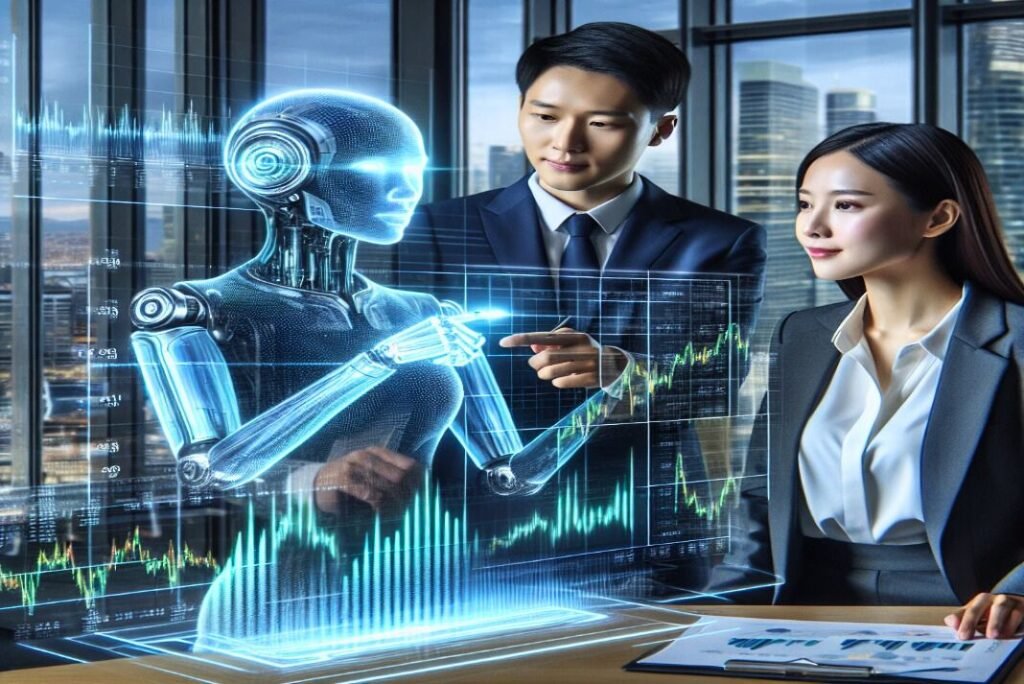
Trading and Investing
AI can enhance trading and investing, by helping investors and traders analyze and predict various financial markets and instruments, such as stocks, bonds, currencies, and commodities. AI can also help investors and traders execute and optimize their trading and investing strategies, by providing signals, alerts, and recommendations.
Some examples of AI systems that can help with trading and investing are:
- Quantopian: A platform that uses AI to provide tools and services for trading and investing, such as data, algorithms, backtesting, and competitions.
- Robinhood: A platform that uses AI to provide tools and services for trading and investing, such as commission-free trading, fractional shares, and cryptocurrency.
- Wealthfront: A platform that uses AI to provide tools and services for trading and investing, such as robo-advisors, portfolio management, and financial planning.
Banking and Lending
AI can improve banking and lending, by helping banks and lenders provide and manage various financial products and services, such as accounts, cards, loans, and mortgages. AI can also help banks and lenders reduce costs, risks, and fraud, by enhancing their customer service, security, and compliance capabilities.
Some examples of AI systems that can help with banking and lending are:
- Bank of America: A bank that uses AI to provide tools and services for banking and lending, such as Erica, a virtual assistant that can help customers with various banking tasks and queries.
- LendingClub: A platform that uses AI to provide tools and services for banking and lending, such as peer-to-peer lending, personal loans, and business loans.
- Stripe: A platform that uses AI to provide tools and services for banking and lending, such as online payment, billing, and financing.
Insurance and Risk Management
AI can enable insurance and risk management, which are techniques that can help individuals and businesses protect and cover themselves from various potential losses and damages, such as accidents, disasters, and lawsuits. AI can help insurers and risk managers provide and manage various insurance and risk management products and services, such as policies, claims, and premiums. AI can also help insurers and risk managers improve their pricing, underwriting, and fraud detection capabilities.
Some examples of AI systems that can help with insurance and risk management are:
- Lemonade: A platform that uses AI to provide tools and services for insurance and risk management, such as renters, homeowners, and pet insurance.
- Aon: A company that uses AI to provide tools and services for insurance and risk management, such as risk assessment, mitigation, and transfer.
- Zurich: A company that uses AI to provide tools and services for insurance and risk management, such as car, home, and travel insurance.
Conclusion
In this article, we have explored some of the most prominent and promising applications of AI, and how they are transforming the world for the better. AI has been applied to various domains and industries, such as healthcare, education, business, entertainment, security, law, and finance, and has helped improve the quality, efficiency, and accessibility of various products and services.
Artificial Intelligence has also enabled new and innovative forms of media and art, such as gaming, music, and social media, and has provided more engaging and immersive experiences for users and audiences. AI is undoubtedly one of the most powerful and influential technologies of our time, and has the potential to create even more positive and profound impacts in the future.
FAQs
Here are some frequently asked questions about the applications of AI:
